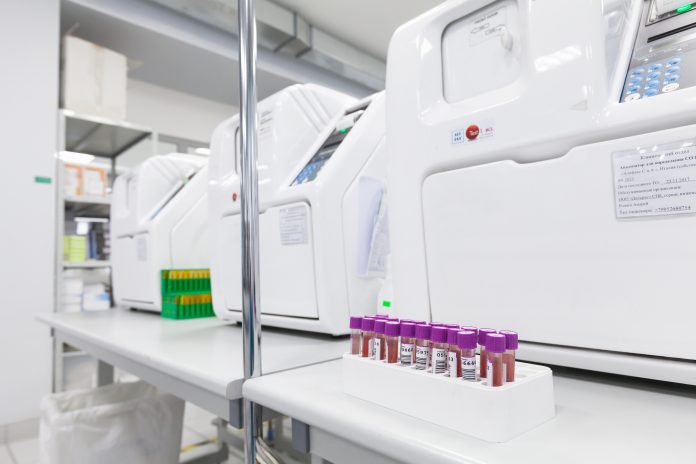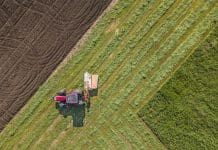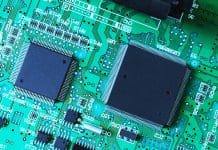In this article, experts highlight developments in Russian precision medicine research and biobanking infrastructure, which boosts national biomedical research
The rapid technological development has been a major contributor to the progress of precision medicine initiatives globally.
The Russian Federation is no exception and has been supporting such national initiatives on precision medicine through the creation of appropriate infrastructure, including medical research biobanks. Since disease correlations in precision medicine investigations are often weak or rare, researchers require samples in large quantities to confirm their observations. As such, precision medicine initiatives are inexorably dependent on the availability of high-quality samples through biobank infrastructures.
Research biobanks collect, process, store and distribute biospecimens (such as blood and blood derivatives, tissue samples, etc.) and associated clinical and laboratory data in a highly efficient, secure and organised manner, for research that will eventually lead to clinical applications. Prior to 2010, Russian biomedical research relied on numerous disparate collections of biospecimens driven by individual research goals and localised in separate institutions. Such collections were often poorly organised, related to the activity of a sole researcher/laboratory, and for these reasons rarely shared between researches in Russia or internationally.
Starting in 2010, however, full-scale research biobanks started to appear in Russia, either organised anew or based on the existing institutional collections of biospecimens. This coincided with the national “Pharma 2020” initiative aiming to create and support long-term the development of research-based biopharmaceutical industry in Russia. It is generally believed that national precedence belongs to the biobank of the Production Association ‘Mayak’ in the city of Ozersk,(1) in central Russia. Among other achievements, the work of this biobank helped to create global radiation safety standards. The ‘Mayak’ biobank was followed in 2012 by the biobank of the Almazov Federal Center for Heart, Blood & Endocrinology in Saint-Petersburg.(2)
Following on from these successes and to better address the huge size of the country, diversity of environmental and living conditions, as well as the ethnic diversity of Russia’s population, many leading clinical and research institutions, have since established their own biobanks to support internal research programmes and facilitate better integration into global research initiatives.
In particular, both leading Russian universities, Moscow State University and Saint-Petersburg State University, now possess their own research biobanks developed with considerable government funding and operating in collaboration with affiliated clinical centres. Just in Moscow, numerous research biobanks were formed recently: in the Gamaleya Scientific Research Institute of Epidemiology and Microbiology; in the National Research Center for Preventive Medicine; in the Sechenov First Moscow State Medical University; in the National Medical Research Center for Endocrinology; the Biobank of Indigenous Population of Northern Eurasia and others.
In addition to Moscow and Saint-Petersburg, biobanking infrastructures are being formed in Central and Southern regions, as well as in the Far East of Russia, reflecting the growth of precision medicine focused and other research programmes. By 2019, over 25 research biobanks operate in Russia, most of them deeply involved in precision medicine studies.
Similar to other countries, Russian research biobanks fall into the following types: i) Population cohorts, such as the biobanks of the Gamaleya Scientific Research Institute of Epidemiology and Microbiology and the Biobank of Indigenous Population of Northern Eurasia; ii) Collections focused on particular diseases, such as the biobanks of the National Research Center for Preventive Medicine and the National Medical Research Center for Endocrinology; or iii) Focusing on biodiversity and environmental protection, such as the ‘Noah’s Ark’ biorepository in Moscow State University.
All academic research biobanks are fully funded by the Russian Government directly or through local government grants, reflecting its commitment to stimulate both fundamental biomedical research and R&D programmes aiming at developing effective diagnostic tools and medicines for socially significant diseases. Importantly, Russian economic development agencies and initiatives are also playing a role in supporting precision medicine research by considering biobanking as an essential component of the overall research ecosystem necessary for the growth of innovative biopharmaceutical industries.
In particular, a step-change happened when the Russian Venture Company (RVC) and Skolkovo Foundation created and supported an entirely new infrastructure model in the first commercial research biobank in Russia, National BioService (NBS); establishing a growing clinical and laboratory network and providing its services both nationally and internationally. As evidence of the importance of biobanking within the Russian National Technological Initiative (NTI), the creation of a biobanking network in five key regions of Russia was defined as a priority project in the roadmap for the HealthNet area of NTI, which covers personalised medicine and healthcare, and the National BioService team was selected for this task.
The support of precision medicine research by the Russian Federation continues to grow, often mentioned specifically by the Russian Minister of Healthcare and with more such initiatives expected to be announced. To this end, Russian biobanks form part of the essential infrastructure and in an effort to respond to the ever-increasing demand for high-quality research samples, individual biobanks now integrate into networks.
Very recently, the Russian National Association of Biobanks and Biobanking Specialists (NASBio) has been formed, aiming towards disseminating modern models of biobanking in Russia, promoting and implementing internationally recognised best practices, establishing professional links and facilitating the integration of Russian biobanks into large-scale research projects.(3)
Recognising the global nature of medical research and needing to conform with international standards, many Russian biobanks are now members of the International Society for Biological and Environmental Repositories (ISBER), a leading professional organisation in the biobanking field worldwide. An official Russian translation of ISBER Best Practices (4th ed.) was published late 2018 attracting much attention in the professional field.(4)
It is apparent that precision medicine research and biobanking develop together and fast in the Russian Federation. Despite some uncertainties and teething problems that typically accompany every new field, they are now advancing rapidly, facilitating the progress of biomedicine on the national level and contributing to research efforts of the global scientific community.
References
1. Loffredo C, Goerlitz D, Sokolova S, et al. (2017) The Russian Human Radiobiological Tissue Repository: A Unique Resource for Studies of Plutonium-Exposed Workers. Radiat Prot Dosimetry. 173 (1-3): 10-15. doi: 10.1093/rpd/ncw303.
2. Rotar OP, Moguchaya EV, Boyarinova MA, et al. (2015) Siege of Leningrad Survivors Phenotyping and Biospecimen Collection. Biopreserv Biobank. 13 (5): 371-375. doi: 10.1089/bio.2015.0018.
3. Russian national Association of Biobanks and Biobanking Specialists (NASBio): http://biobanking.ru/index.php/homepage
4. Best Practices: Recommendations for Repositories. Fourth Edition (in Russian). In: Biobanks and Progress of Biomedicine. S.V.Anisimov, ed., St-Petersburg, 2018.
Disclaimer
Where authors are identified as personnel of the International Agency for Research on Cancer/WHO, the authors alone are responsible for the views expressed in this article and they do not necessarily represent the decisions, policy or views of the International Agency for Research on Cancer/WHO.
Sergey V. Anisimov
Oleg K. Granstrem
Vitali Yu. Proutski
National BioService LLC (NBS)
Tel: +7 812 603 2609
info@nbioservice.com
www.nbioservice.com
Zisis Kozlakidis
Laboratory Services and Biobank Group
International Agency for Research on Cancer
World Health Organization
Lyon, France
Tel: +33 472 738 411
www.iarc.fr
https://twitter.com/iarcwho











